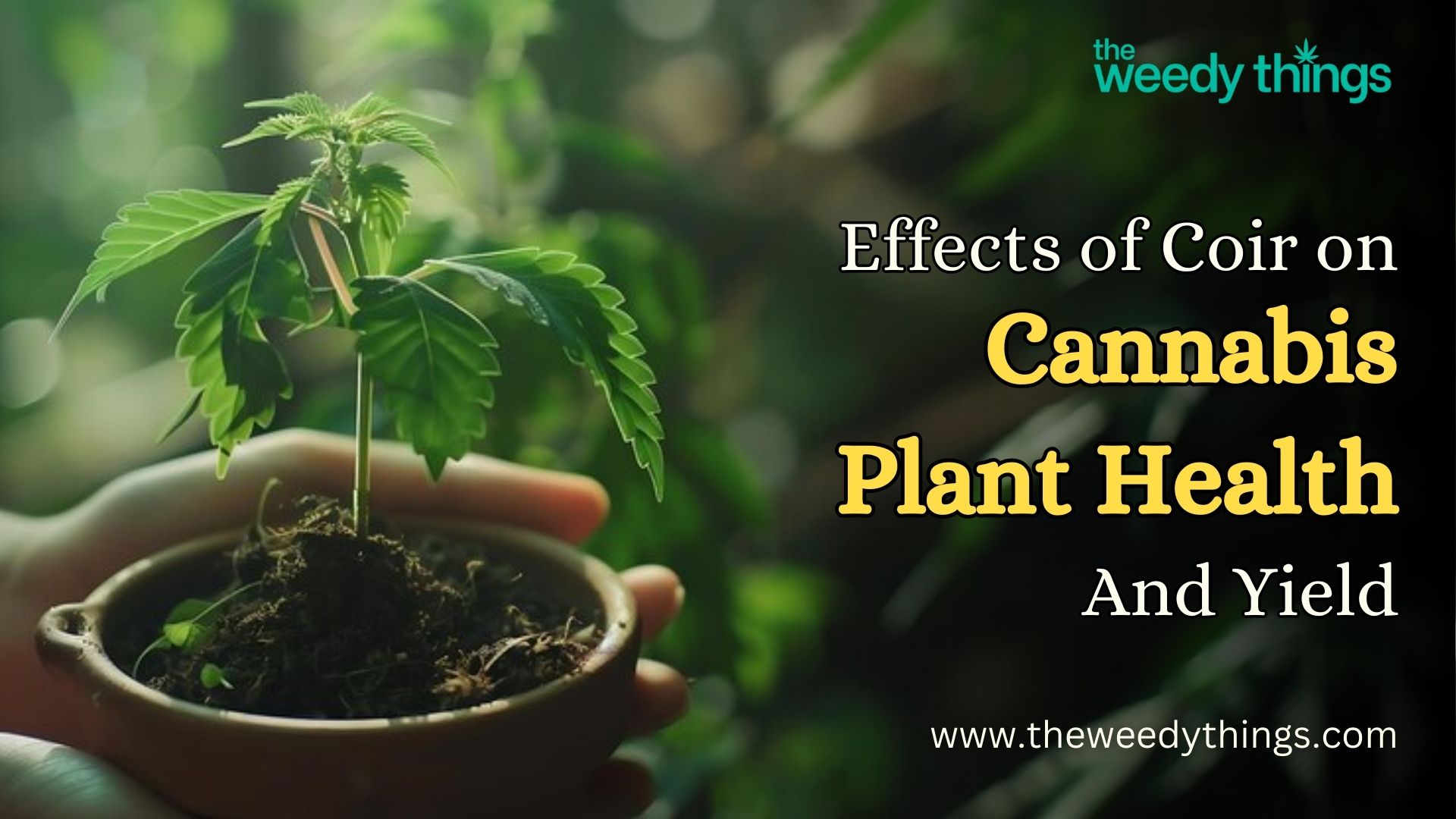Understanding Coir as a Growing Medium
Coir is composed of fibrous material derived from coconut shells, which are processed into various forms, including coir fiber, coir pith, and coir chips. Its composition makes it an excellent growing medium for several reasons:
1. Water Retention: Coir has a high water retention capacity, allowing it to hold moisture without becoming waterlogged. This property helps maintain consistent moisture levels, which is crucial for cannabis plants, particularly during their vegetative and flowering stages.
2. Aeration: The fibrous structure of coir promotes excellent aeration, ensuring that roots receive adequate oxygen. This is vital for root health and nutrient uptake, which ultimately contributes to overall plant vigor.
3. pH Neutral: Coir is typically pH neutral, making it suitable for a wide range of nutrient solutions. This characteristic allows cultivators to adjust nutrient formulations without worrying about substrate acidity affecting plant growth.
4. Sustainability: As a renewable resource, coir is an eco-friendly alternative to peat moss, which is often harvested unsustainably. Using coir supports sustainable agricultural practices and reduces the environmental impact of cannabis cultivation.
The Impact of Coir on Cannabis Plant Health
Improved Root Development
Research has shown that coir can significantly enhance root development in cannabis plants. The fibrous nature of coir allows roots to spread and penetrate the medium more easily, leading to a more extensive root system. A well-developed root system is essential for nutrient uptake, water absorption, and overall plant stability. As a result, cannabis plants grown in coir often exhibit increased vigor and resilience against stress factors such as pests and diseases.
Enhanced Nutrient Availability
Coir has a unique ability to retain nutrients while also allowing for efficient drainage. This characteristic minimizes the risk of nutrient leaching, ensuring that essential elements remain accessible to the plant. Moreover, coir has a high cation exchange capacity (CEC), which refers to its ability to hold positively charged ions. This property allows coir to retain vital nutrients like potassium, calcium, and magnesium, making them available to cannabis plants as needed.
Disease Resistance
The use of coir as a growing medium has also been associated with improved plant health and disease resistance. Its structure discourages the development of harmful pathogens and molds that thrive in overly moist conditions. By providing a well-aerated environment for root systems, coir helps mitigate the risk of root rot, a common issue in cannabis cultivation. Healthy plants are more resilient and better equipped to fend off pests and diseases, leading to higher overall yields.
Evaluating Yield Performance
Growth Rate and Yield
Numerous studies have highlighted the positive correlation between coir use and cannabis plant yield. The enhanced aeration and water retention properties of coir promote faster growth rates, allowing plants to reach maturity more quickly. Additionally, the consistent moisture levels provided by coir help prevent stress during critical growth stages, contributing to higher yields.
Cannabis cultivators have reported that plants grown in coir often produce larger buds and a greater overall yield compared to those grown in traditional soil. This is especially important for commercial growers looking to maximize their output and profitability in a competitive market.
Quality of the Final Product
The quality of cannabis is determined not only by its yield but also by its cannabinoid and terpene profiles. Coir has been shown to contribute positively to the flavor and aroma of cannabis. The ability of coir to retain nutrients and moisture allows for a more balanced nutrient uptake, which can enhance the production of terpenes—compounds responsible for the distinct aromas and flavors of cannabis strains.
Choosing the Right Coir Products
When selecting coir as a growing medium for cannabis, it’s important to consider the type of coir product that best suits your cultivation needs. Coir products come in various forms, including bricks, blocks, and pre-mixed blends.
- Coir Bricks: These compressed bricks expand when soaked in water, making them a space-efficient option for growers. They can be mixed with other substrates to create customized blends tailored to specific growing conditions.
- Coir Pith: Also known as coir dust, this form of coir is ideal for improving soil structure and moisture retention when mixed with soil or other substrates.
- Coir Chips: These larger chunks of coir provide excellent aeration and drainage, making them suitable for growing cannabis in hydroponic systems.
The Role of Local Cannabis Stores and Legal Cannabis Stores
As the demand for coir as a growing medium rises, local cannabis stores and legal cannabis stores are increasingly stocking a variety of coir products. These stores serve as valuable resources for cultivators looking to enhance their cannabis growing practices. They often provide expert advice on the best coir products to use, ensuring that growers can make informed decisions based on their specific cultivation goals.
By supporting local cannabis stores, growers can access quality coir products while also contributing to their communities. These stores often carry a range of supplies, including nutrients, tools, and equipment that complement coir cultivation.
The effects of coir on cannabis plant health and yield are clear. Its unique properties, such as water retention, aeration, and nutrient availability, contribute to improved root development, disease resistance, and overall plant vigor. As a result, cannabis plants grown in coir often yield higher quantities of quality buds, making coir an appealing choice for cultivators.
Frequently Asked Questions
Coir is a natural fiber from coconut husks, used as a growing medium for its water retention and drainage properties.
Coir promotes healthy root growth by providing good aeration and moisture balance.
Yes, coir helps improve yields by creating an optimal growing environment with better water and nutrient management.
Coir offers better drainage, fewer pests, and better control over nutrient levels compared to soil.
Yes, coir requires specific nutrient adjustments, especially for calcium and magnesium, as it can retain salts.




